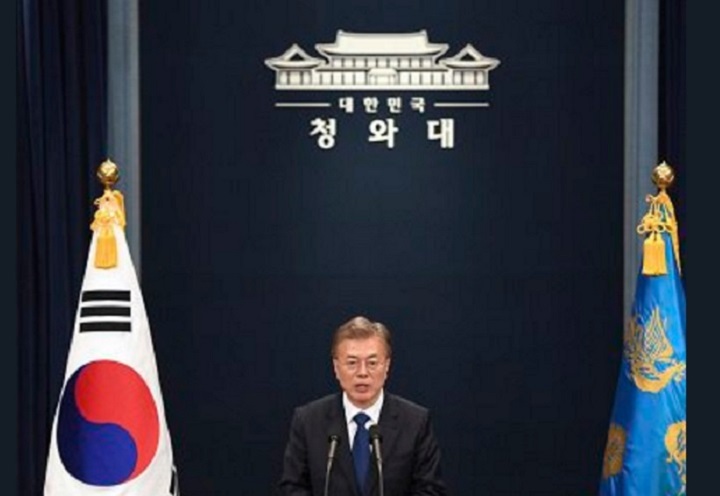On Monday, June 19, South Korea’s new president, Moon Jae-in, disclosed that South Korea will be moving away from the use of nuclear energy. South Korea is thought to be one of the largest nuclear electricity manufacturers in the world, but Moon Jae-in stated that the country will not be adding nuclear power plants nor will they be extending the life of existing power plants. This is crucial news to anyone interested in alternative energy investing as this marks a shift in decades of dependence on nuclear energy.
In addition to abandoning plans of adding nuclear power plants, President Moon Jae-in pledged to cut down South Korea’s dependency on coal. As of right now, South Korea plans to shut down 10 coal power plants while stopping the construction of more coal power plants.
There was a ceremony held on Monday for the shutdown of South Korea’s oldest nuclear power plant, Kori 1, in Busan. President Moon Jae-in gave a speech at the ceremony and stated, “So far South Korea’s energy policy pursued cheap prices and efficiency. Cheap production prices were considered the priority while the public’s life and safety took a backseat. But it’s time for a change.”
Throughout Moon’s presidential campaign he promised to cut both coal and nuclear power and his speech on Monday is a clear sign that he plans on sticking to his world. Greenpeace and a number of other environmental groups are thrilled with the news.
The Kori 1 nuclear power plant began production in 1978 and since then South Korea has added an additional 24 nuclear power plants in order to meet the rising demand for electricity from accelerated industrialization and economic development. In 2016, a third of electricity in South Korea was created from nuclear power plants alone. As reported by the World Nuclear Association, in 2016, South Korea’s nuclear power output from 25 nuclear power plants was the fifth-largest in the world.
Additionally, South Korea have exported their nuclear reactor technology. Lee Myung-bak, the former president of South Korea, helped advocate nuclear energy as part of South Korea’s clean energy plan. Myung-bak also helped local companies in South Korea obtain deals to construct a nuclear power plant in the United Arab Emirates.
However, after the 2011 Fukushima meltdown in Japan, South Korea became skeptical about nuclear energy. With a number of fake parts scandals circulating the country, fear and worry spread regarding nuclear power plant’s safety. Earthquakes in southeastern South Korea have also played a defining role in the lack of support in the country as many had believed that they were safe from earthquakes. Furthermore, President Moon Jae-in’s administration is looking for a place to store spent nuclear fuels for the long term.
To withdraw the Kori 1 reactor from active service, South Korea has plans to invest developing their own decommissioning technology. According to the energy minister, the decommissioning should take roughly 15 years and cost 643.7 billion won, or $569 million.
Featured Image: twitter











